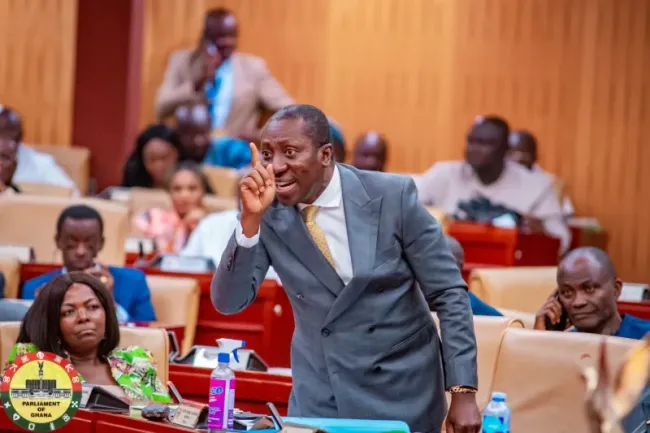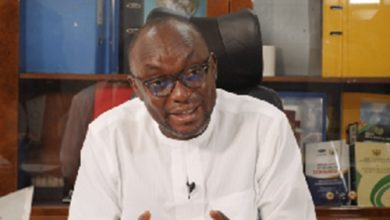
The Minority Leader in Parliament, Alexander Afenyo-Markin, has taken issue with claims made by Finance Minister Dr Cassiel Ato Forson regarding the recent appreciation of the Ghanaian cedi, arguing that the gains are not unprecedented and were built on foundations laid by the previous New Patriotic Party (NPP) government.
Speaking during the parliamentary debate on the 2025 Mid-Year Budget Review on Thursday, 31 July, Afenyo-Markin acknowledged the cedi’s improved performance in early 2025 but insisted the context surrounding the development had been misrepresented.
“Mr Speaker, the Mid-Year Review makes much of the Ghanaian cedi’s performance, with the Minister jubilantly declaring ‘cedi no apicki’,” he said. “He even claims the recent appreciation has never happened in the history of the country. Let’s analyse this carefully.”
According to the Effutu legislator, the cedi’s recovery should not be viewed in isolation. He said global events—including the aggressive interest rate hikes by the U.S. Federal Reserve and the Russia-Ukraine war—had triggered widespread currency depreciations across developing economies in 2022, and Ghana was not spared.
“In 2022, virtually all emerging economies saw their currencies fall sharply against a surging US dollar,” Afenyo-Markin noted, adding that Ghana’s currency, at one point, became one of the worst-performing in the world due to high inflation, dwindling reserves, and uncertainty surrounding the country’s fiscal direction.
He explained that Ghana’s woes were compounded by a temporary loss of investor confidence and delays in securing an IMF support package, which further pressured the cedi.
However, he was quick to highlight that the previous NPP administration had made strides to stabilise the economy and the local currency by the end of 2023.
“After reaching its weakest point in late 2022, the cedi’s slide was arrested and partially reversed,” he said. “By the end of 2024, the depreciation had slowed dramatically to only 19% year-on-year against the dollar. That was a marked improvement from the earlier free-fall.”
Mr. Afenyo-Markin cited the $3 billion IMF Extended Credit Facility agreement, the domestic debt exchange programme, and the Gold-for-Oil policy as some of the key interventions that shored up confidence in the economy and helped stabilise the cedi.
He argued that the current National Democratic Congress (NDC) administration, led by President John Mahama, inherited a recovering currency and not one in a free fall, contrary to the impression created by the Finance Minister.
“So when the new government took over the reins of affairs in January 2025, they inherited a stabilising currency, not a perpetually dwindling one,” he insisted.
While commending the recent strengthening of the cedi, Mr Afenyo-Markin called for a more nuanced and historically grounded narrative, cautioning against “selective triumphalism” that overlooks the broader economic context and the groundwork laid by past administrations.
The Finance Minister, Dr Ato Forson, in presenting the 2025 Mid-Year Budget Review, had described the cedi’s recent appreciation as historic and reflective of renewed investor confidence and macroeconomic stability under the current government.




